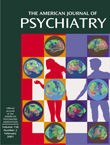The Detection and Treatment of Psychiatric Disorders and Substance Use Among Pregnant Women Cared for in Obstetrics
Abstract
OBJECTIVE: This investigation assessed the detection and treatment of psychiatric disorders and at-risk substance use among pregnant women in the obstetric sector. METHOD: The Primary Care Evaluation of Mental Disorders Patient Health Questionnaire and modified CAGE questionnaires were used to assess current psychiatric disorders and at-risk substance use among 186 women receiving prenatal care. Medical records were reviewed for evidence of obstetrical providers’ recognition of psychiatric and substance use symptoms and diagnoses and initiation of evaluations and treatments. The associations between patient characteristics and chart-documented evaluations and treatments were ascertained. RESULTS: Seventy (38%) of the women met screening criteria for psychiatric disorders or substance use. Among women who screened positive, symptoms were recorded in 43% of the charts, diagnoses in 18%, evaluations in 35%, and treatments in only 23% Patients who screened positive for psychiatric disorders and/or substance use were significantly more likely to have a documented mental health evaluation if they were less well educated, had inadequate prenatal care, or had longer hospital stays at delivery. CONCLUSIONS: A substantial number of women treated in obstetrics have unrecognized and untreated psychiatric disorders and substance use. Given the potential impact of antenatal mental disturbances on maternal and infant outcomes, further investigations into the psychiatric evaluation and treatment of pregnant women in the obstetrical sector are required.



